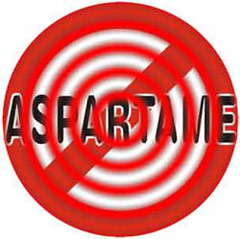Aspartame, a controversial artificial sweetener, has been linked to cancers, multiple sclerosis, degraded vision, and a host of other side effects. However both the FDA and the European Food Authority are falling over backwards to deny that aspartame could ever be bad for us. Ajinomoto, the maker of the sweetener, joins in the chorus with a study that reviewed previous published material and comes to the conclusion that aspartame is ... safe.

Image: The Common Voice.
In a recent open letter to the UK Food Safety Authority, Betty Martini brings up the subject of additives and childrens' behavior. It seems that combinations of colorants with aspartame and monosodium glutamate are especially damaging:
Dr. Blaylock, neurosurgeon wrote: "Many recent studies have illustrated that food additives (such as red and yellow dyes, MSG, aspartame, gluten and gliadin) can adversely affect human behavior - especially in small children.
"But when Dr. Ben Feingold first made these assertions back in 1975, as you might expect, the medical community balked. Now powerfully convincing evidence indicates that when MSG and aspartame are combined with certain food dyes, the effects can have profound implications on learning, memory and behavior.
"In one study, researchers combined Brilliant Blue dyes, Quinoline Yellow, L-aspartyl-L-phenylalanine methyl ester (aspartame) and MSG. They discovered that when these substances were added together and given to a child, they inhibited brain cell development.
"For instance, compared to when the additives were used alone, the rate of inhibition on cell development was four times higher when MSG was combined with Brilliant Blue - and seven times higher when Quinoline Yellow was mixed with aspartame.
But according to a recent paper of Ralph Walton, MD, aspartame can trigger not only changes in behavior but serious psychiatric disorders by its ability to impact the central nervous system:
- - -
Aspartame and Psychiatric Disorders
Although psychiatry is far from an exact science, over the past half century there has been an explosive growth in our understanding of the human brain and consequently in our ability to diagnose and treat mental disorders. We have also become much more sophisticated about the impact of a variety of toxins on psychological processes. I am convinced that one such toxin is aspartame.
Two years after aspartame was introduced onto the market I first became aware of the negative impact of this artificial sweetener on the central nervous system. I had been treating a then 54 year old woman with imipramine, a tricyclic antidepressant, because of recurrent major depressive episodes. Previous psychoanalytically based therapy had proven ineffective, but she responded dramatically to 150mg of imipramine per day. She had done well for 11 years on this medication, but was then suddenly hospitalized with a grand-mal seizure and subsequent manic episode.